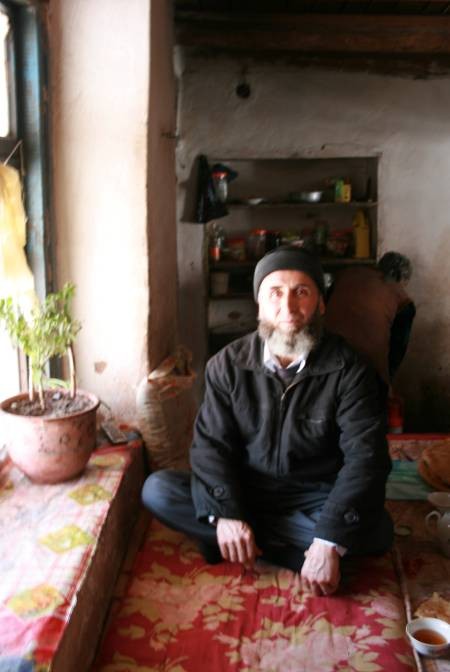
Jumabek Begov’s white beard and wizened eyes indicate a man well beyond his 48 years, yet his energy and passion for productive farming place him on par with the youth of his village. With only one hectare of land (2.47 acres), Begov grows wheat, potatoes, beans, carrots, onions and cabbage. Before the irrigation canal in his village was repaired, however, Begov’s life was very different.
“Before the irrigation canal, I only grew wheat and a small amount of other crops like potatoes,” Begov explains. “All of the crops I grew were used for my family – I did not have enough to sell. I did not even have enough to feed my family all the time.”
During the summer growing season, the Tajikistan Stability Enhancement Program, a USAID-funded activity operating in the Tavildara Valley since 2009, has rehabilitated the defunct irrigation canal in Argankul, jumpstarting production and allowing farmers like Begov to produce enough food to eat and surplus potatoes to sell. With only a few months of irrigation last season, Begov was able to grow far more produce than in previous years. The next growing season, he estimates that he could make 1,500 Tajik Somoni ($340) from just the sale of potatoes. This is good news for him and the 12 other members of his household.
Begov’s family is originally from the Argankul area but was moved to the south in the 1920s to grow cotton during the Soviet era. After Tajikistan’s independence, Begov’s family returned to Argankul.
He remembers the land and the difficulties of growing only one crop. “It’s impossible to develop your life with just potatoes and wheat. You must diversify to ensure against any pests or bad weather,” he said. “I can now grow many different crops as well as grass for the animals and the bees. These are all important parts of a productive farm.”
The additional water from the rehabilitated irrigation canal has allowed Begov to realize his vision for a diverse, self-contained and productive farm – and made him one of the most successful farmers in Argankul.







Comment
Make a general inquiry or suggest an improvement.